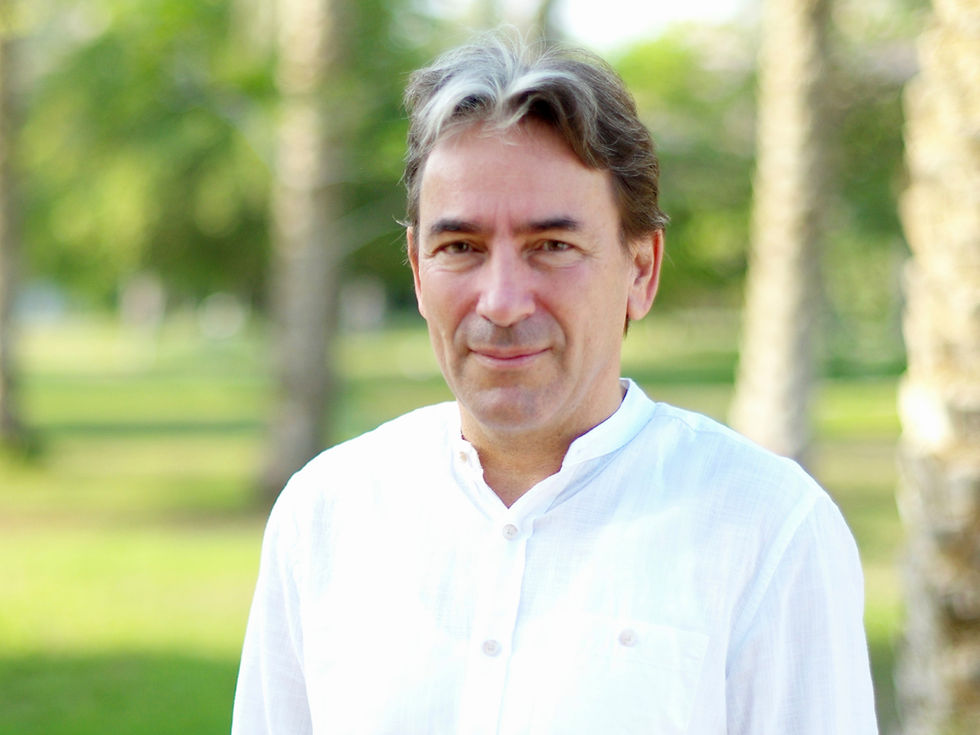The SEKEM Community: Champion of Organic Farming and Sustainability
- BiO ReporterIn

- Sep 18
- 4 min read
The SEKEM Community: Champion of Organic Farming and Sustainability
Egypt's early advanced civilisation developed many skills that can now only be admired in museums. SEKEM has developed a new, holistic culture of transformation. During a visit, we were able to experience this and the many facets of this champion of sustainability. SEKEM is a pioneer of sustainability in Egypt and beyond. Dead desert soils are being brought back to life, jobs and training places are being created, and education and culture are being offered. Founder Ibrahim Abouleish, his companions and successors have a vision and have already achieved a great deal. A community has emerged that lives justice and peace for all skin colours and religions and enables each individual to develop and flourish as an individual.
The day at the Sekem Main Farm opens with the call of the muezzin at dawn. Egypt has a predominantly Muslim population. Sekem founder Dr Ibrahim Abouleish has studied a wide variety of religious and philosophical traditions – Islam, Christianity, Sufism and also anthroposophy. The commonalities between these teachings inspired him to develop his holistic vision, the ‘Economy of Love’. It strives for a balance that focuses on ecological action, social and cultural justice of opportunity in society, and economic development for the benefit of the community. This vision, which is lived out in Sekem, is called the ‘Economy of Love’. It was given this name by an Egyptian farmer who was convinced of the concept.
The bold plan to practise biodynamic agriculture in the desert
‘Economy of Love’ sounds a little strange to our ears. But anyone who experiences Sekem can identify with this name and perceives the many facets of the initiative with amazement and appreciation. This is especially true when you know the history of how this now thriving and flourishing paradise began. No one gave Dr Ibrahim Abouleish's bold ideas and plans a chance when he returned to his homeland with his family in 1977. Wasn't it completely crazy to buy a piece of desert from the Berbers and practise biodynamic agriculture there? Not only is that incredible, but what is even more incredible is that since 1977, a successful, multi-layered group of companies has emerged with a value of 440 million US dollars, according to World Bank estimates, and a net turnover of the equivalent of 15.2 million euros in 2023.
Sekem not only produces organic food for its own use, for the initiative's more than 2,000 employees, but also for its many own businesses, from kindergartens, schools and canteens to the guest house and canteen of the Heliopolis University for Sustainable Development in Cairo.

"Sekem is living proof that marketing organic products can work well if you efficiently add value to raw materials by manufacturing highly refined products such as tea bags, tablets or even a shirt made of organic cotton.
Then, at the end of the value chain, there is still so much left over that the added value can be used, as in our case, to build schools and a university and invest in new projects and social and cultural development." HelmyAbouleish
Successful: the economic sector at SEKEM
SEKEM Holding brings together: Sekem's highest-turnover company, the food manufacturer Isis, including water bottling from its own source. Isis is the market leader in herbal tea bags in Egypt and is represented in around 55,000 shops. The SEKEM processing company Lotus processes herbs, spices, seeds and seed stock that come from its own biodynamic farms and from contract farmers, either for further processing or for export in bulk. German organic companies such as Lebensbaum, Rapunzel, Erdmannhauser, Alnatura, Davert and Weleda are important customers for sesame, herbs and oils, for example. Organic companies in France, Great Britain, Holland, Italy and the USA are also on the list of customers. In addition, NatureTexis extremely successful and contributes a significant share of the 30 to 40 per cent of export sales. The natural textiles made from organic cotton can be found in Germany at Alnatura and dm Drogeriemarkt, but are also exported to many other European countries and worldwide. The natural remedies company Atos, on the other hand, mainly supplies the Egyptian market and is listed in over 33,000 pharmacies.

Economy of Love – Putting people first
Back to the philosophy of the Economy of Love, which is the secret to success from SEKEM's point of view. The highest premise of this economy of love is to give every member of the community the opportunity to develop and unfold their talents. It is said that the first purchases at SEKEM 48 years ago were a tractor and a piano. This illustrates Abouleish's intention. Over the course of almost 50 years, this concept of thinking about the economy in a new, holistic way, tailored to the needs of employees, has developed an impressive dynamic. But SEKEM is always on the move, constantly being developed by the SEKEM community, the external network of business partners and the ‘Friends of SEKEM’ support associations, and continuously provided with forward-looking new ideas, content and goals – the SEKEM Vision Goals – which are to be implemented step by step by 2057.
At the Heliopolis University for Sustainable Development, founded by Abouleish, a standard and logo for the Economy of Love was developed. It can be found on SEKEM products, but other companies can also be certified according to the fair trade and organic standard. More importantly, however, the Economy of Love must be continuously implemented in daily activities. It is also the subject of research and will be further developed as the SEKEM Vision Goals until 2057.
Author, text, photos and videos: Karin Heinze, BiO Reporter International










Comments